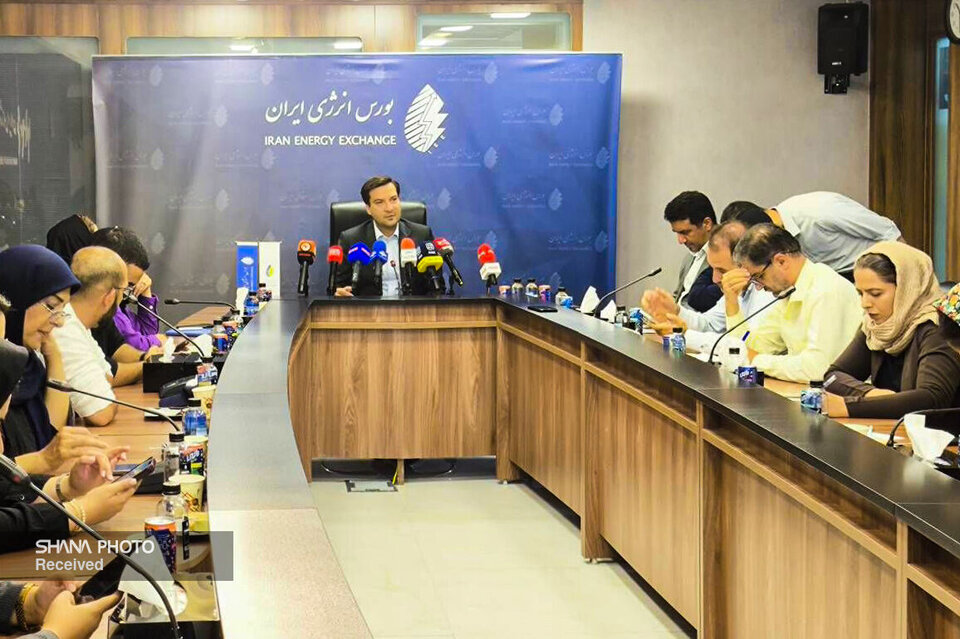Mohammad Nazifi, speaking at a press conference Tuesday on the occasion of Journalist’s Day, acknowledged media efforts in covering energy sector developments and emphasized the strategic importance of the oil and gas industry in the national economy.
He noted that Iran, with its vast fossil fuel resources, has over a century of experience in oil and gas, dating back to the discovery of the Masjed Soleyman oil field—the first in the Middle East—which marked the beginning of Iran’s modern energy industry.
Despite these resources, he said, mismanagement in allocation and consumption has hindered Iran’s role in regional energy markets and even caused challenges in meeting domestic demand. This issue is even more acute in the water sector due to natural resource scarcity.
Market mechanisms: Solution to energy imbalances
Nazifi asserted that the Energy Exchange believes market mechanisms are the only sustainable way to balance supply and demand. The exchange’s role is to provide a transparent, competitive and accessible platform for optimal interaction between market participants.
He said the Energy Exchange has launched multiple markets, including those for oil, gas and derivatives, electricity (regular, green and free markets), unconventional water and related financial and derivative instruments.
New tools promoting efficiency and sustainable development, such as electricity and gas savings certificates, are now tradable. Similar water-saving instruments are available to water and wastewater companies, while the launch of a carbon market is underway in collaboration with the Department of the Environment.
26% growth in energy trading
Nazifi reported a 26% increase in energy trading value in the first four months of the current Iranian year (started March 21), with hydrocarbon markets dominating at 85 trillion tomans of the total 125 trillion tomans. Electricity trading accounted for 26 trillion tomans, while savings certificates, financial instruments and derivatives exceeded 4.2 trillion tomans.
In the previous year, total trading value reached 330 trillion tomans, with hydrocarbon markets contributing 280 trillion tomans and electricity accounting for 19 trillion tomans. Financial instruments and savings certificates made up nearly 20 trillion tomans.
International ring: A hub for oil, gas trading
Hydrocarbon markets, representing over 80% of the Energy Exchange’s trading value, saw about 70% of transactions conducted in the international ring, where deals are executed in rials and dollars. Last year, liquefied gas (50 trillion tomans), naphtha (35 trillion tomans) and kerosene (22 trillion tomans) were the most traded products. Domestically, kerosene, methanol and heavy naphtha were among the top commodities.
Electricity, water trading: Diversification, efficiency
Nazifi noted that 18 million megawatt-hours of physical electricity (worth 5.4 trillion tomans) and 99 million megawatt-hours of derivative contracts (over 11 trillion tomans) were traded last year. Additionally, 660,000 megawatt-hours of green electricity (2.6 trillion tomans) changed hands.
In the unconventional water market, over 300,000 cubic meters were traded this year, primarily by industries and municipalities. Nazifi expects growth with the expansion of water-saving certificates and desalination project futures.
Project financing
The Energy Exchange facilitated 15 trillion tomans in project financing last year, with 6 trillion tomans raised so far this year.
Future goals: Market expansion, leadership
Key strategic objectives include establishing benchmark prices, deepening existing markets, developing new investment tools, upgrading technological infrastructure and expanding international engagement. Targets also include increasing the exchange’s share in electricity trading to 60%, developing crude oil, diesel, gasoline and water markets using deposit certificates, and improving data reporting.
Nazifi highlighted cooperation with parliament, government agencies and ministries to advance these goals.
Upcoming diesel savings certificates
The Energy Exchange plans to introduce diesel savings certificates soon, aiming to mitigate price disparities. Nazifi also urged the Oil Ministry and National Iranian Oil Company to support financial instruments like crude oil deposit certificates, noting that legal and sanctions-related hurdles—not economic ones—are the primary challenges.
The exchange, he said, is ready to collaborate with stakeholders to create a secure, legal framework for these instruments.


Your Comment